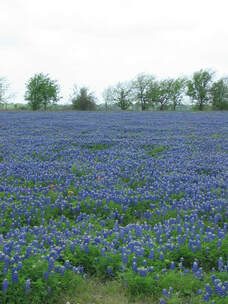 This is an excellent time to become more conscious of discerning God’s desires for us. During Lent, we look more deeply into our habits so that we may affect a sort of spiritual tune-up. The aim is to get back on track with our growth in holiness, to try to clean up areas of sin, and to become better disciples. It is also a good time to reflect upon the sacrifices Jesus made for us, done purely out of love and of His desire that we be saved so that we might spend eternity with Him. Therefore, reading and praying with the Passion narratives is an excellent Lenten practice. Our reflection upon what He suffered can help us to consider our own behaviors so that we might see more clearly if we are growing closer to Jesus or if we have been spiritually lazy and are moving away from Him, even if unwittingly. Another way to put this is that we need to examine whether or not we are living in line with God’s will. All people of faith grapple with what that might be, but for many the phrase ‘God’s will’ strikes fear. The saints, and Jesus Himself, teach us that there is never anything to fear when it comes to approaching God or to discovering His will because the desire of God’s heart is always for our best interests, and of course, that we would know His love more clearly. 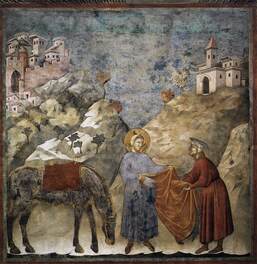 One of the most discussed concepts in all of spirituality is that of ‘knowing God’s will.’ Even so, many folks think that God’s will means He would have some kind of tyrannical control over us if we acquiesce to Him, that is, that we would suffer some sort of loss of freedom. Many others think that God’s will is some esoteric plan which only the holiest of the holy could ever figure out. These thoughts could not be further from the truth. In Old Testament terms God’s will is that we “do the right, act justly, and walk humbly with our God.” (Micah 6:8) In New Testament terms God’s will is that we “love God with all our heart, soul, and mind, and that we love our neighbor as ourselves.” (Matthew 22:37-39) Both are essentially saying the same thing. But how we do those things, in the details of our lives, is left up to us. Life is filled with great complexity, but there are ways to discern the presence of God in order to move closer to Him and thus to grow in holiness. The most important thing to know is that it is not about knowing God’s mind, but rather it is about experiencing His heart and our home within it.  To learn discernment, we must first dispel the root of our fear. The enemy wants us far from God, so he wants us to believe that God will ask something loathsome of us and that it will bring us unhappiness. Of course, this is untrue; fear is not of God, but is an attempt by the evil one at deception. Next, we need to understand that God knows the depths of our hearts. Thus, God would never ask us to do something which is outside of the gifts with which He uniquely endowed us. God loves us more deeply that we could ever fathom, and therefore He does not play guessing games as if to make our lives more difficult. He has provided the Scriptures, especially the Gospels, to help us know how to act; but because He knows where our ultimate happiness lies, God also ‘speaks through’ the people and events of our lives to help in making the choices which ultimately lead us closer to Him. That is, in response to our experiences, we need to become attentive to the movements of our heart which indicate a direction we should go. To identify these movements we can ask ourselves questions such as the following. "What moves me to greater joy? What makes me the most fulfilled? What interests me or draws me? What leads me closer to God?" Our responses, the feelings and attractions we experience, are what we pray with. If they are in line with the gospel and with coming to a greater love for God and therefore, a greater freedom, then we have discerned what God is calling us to do, in other words, His will. Remember, His will is always grounded in our own freedom. We choose freely because that is the nature of His love for us. 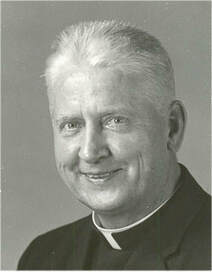 An example of a person who learned how to follow God’s call quite vividly is that of Servant of God, Fr. Walter J. Ciszek, S.J. Born in 1904, Walter Ciszek grew up in Shenandoah, Pennsylvania, and entered the Jesuits at 18. While a novice he heard about the need for missionaries to Russia. Strongly feeling this was what he was called to do, he asked permission to go. Therefore, he was sent to Rome to study the Byzantine Rite and to learn Russian. After ordination, however, he was sent not to Russia, but rather to Poland. In 1939 when Poland was invaded by the Russians, he ended up on a jammed cattle car in horrific conditions, traveling into the Soviet Union. Once there, he could not tell anyone he was a priest because of the communist regime, a reality which kept him from doing any ministry. He struggled with God’s will for him at this point. But through prayer he learned that “God does not expect men single-handedly to change the world or overthrow all evil or cure all ills. He does expect him, though, to act in these circumstances ordained by His will and His providence. Nor will God’s grace be lacking to help him act.” In other words, Ciszek learned that even if he could not do the ministry to which he was ordained, he could act in love, caring for others, listening to them and sharing in their suffering. Thus, relying on grace, he saw that everything was truly in God’s hands.* 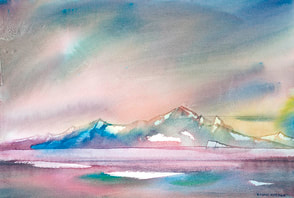 Unexpectedly, Ciszek was arrested by the Soviets who somehow discovered he was a priest. They sent him to Lubianka, the most dreaded prison in Moscow. For five years he was in solitary confinement in a tiny, nearly windowless room, enduring interrogation and torture, accused of being a Vatican spy. He was then transferred to the gulag system, ending up in Siberia where he somehow survived 15 years of hard labor in the mines, managing to bring the sacraments and to minister to those imprisoned with him. After those years, he was freed from the gulag but forced to remain in Siberia. Abruptly, in 1963 he was taken into government custody, sent back to Moscow, and put on a plane to America: a letter he had written his sister had gotten through and so the government traded Ciszek for some Russian spies. He returned to America where he spent the rest of his life ministering and teaching until his death in 1984. 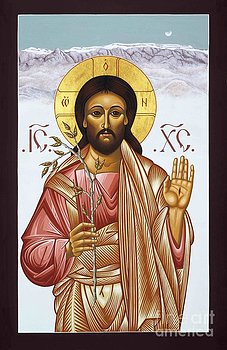 Throughout his ordeal Ciszek had many moments of despair, especially at the beginning. But through his prayer and reliance on God he learned to forget about himself and to act as another Christ. He wrote, “God does not ask the impossible of any man. He was not asking more of me, really, than He asks of every man, every Christian, each day of his life. But He was asking only that I learn to see these suffering men around me, these circumstances in the prison, as sent from His hand and ordained by His providence. He was asking me to do something, as another Christ; to forget about self and feeling sorry for myself, and to act in the situation after the example of Christ himself.”* This is a remarkable insight borne of prayer in the midst of unimaginable suffering. Like Fr. Ciszek we can learn to do the will of God if we attempt to do everything with a bit more love than we might at first think we can offer. With practice, we can learn to take self out of the middle of that which is being asked, letting God replace it with the graces needed to get through painful or difficult situations. Fr. Ciszek’s example teaches that our very presence is more important than anything we can or cannot do: it is about being present to God in our prayer, opening ourselves to that which comes our way, asking for the grace to act in love, and accepting the path which is before us. If we fail along the way, we can turn to God for help, but what is most important is that we keep trying. Similarly, if all we can do is share our presence with others, be assured that it is the best gift to be offered. We can learn how to be as other Christs, knowing that even the smallest deed done with love is a great gift to God. This is what Fr. Ciszek came to understand. He learned to let go of getting stuck in self-pity and found freedom in embracing the presence of God in the midst of horrific conditions. In this, he became holy, and so too, can we. 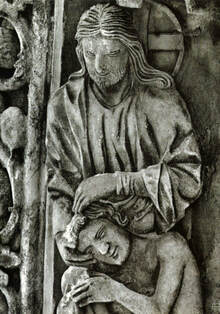 May we confidently put ourselves in God’s hands! May we persevere on our Lenten journey that we might come to know, love, and serve God better! May we learn how to discern the will of God so that we might come to greater freedom! May we be inspired by the life of Servant of God Walter Ciszek and turn to him for intercession! May we trust in the love of God and that He will give us the graces needed to be strong in difficulty and suffering! May we bring God’s love to others by forgetting self and trusting that our presence is enough! And may we come to experience God’s heart and our place within it! Let us continue to meet in the Heart of Jesus! Peace! ©Michele L. Catanese Notes: * The quotes are all from He Leadeth Me by Fr. Walter J. Ciszek, S.J. The specific quotes here can be found on pages 48-50. ~ Fr. Ciszek wrote a number of books. The first was called With God in Russia (written with the assistance of Daniel J. Flaherty, S.J.) and was intended as a memoir, written at the behest of his Jesuit superiors. However, about 10 years later he wrote He Leadth Me (again with the help of Fr. Flaherty) and said it was the book he wanted to write in order to say all that he was not able to write earlier. Later he wrote With God in America: The Spiritual Legacy of an Unlikely Jesuit. For more on the life and experience of Fr. Ciszek here are two short, but excellent biographies: http://www.ciszek.org/About_Ciszek.html http://jesuits.org/news-detail?TN=NEWS-20171013024940 Images: 1. I chose to use my photo of bluebonnets in the Texas Hill Country because they are a sure sign that Spring is here. Lent happens as winter turns into spring, and so I also think of these flowers as a symbol of new life. They bring joy to the hearts of the many who view them. Viewing a carpet of them in a field is definitely life-giving. 2. This painting is St. Francis Giving His Cloak to a Poor Man by Giotto. It is the second of the 28 panels in his fresco on the walls of the Upper Church in the Basilica of San Francesco in Assisi, Italy. I chose this because St. Francis of Assisi is another outstanding example of someone who made a radical transformation from entitled rich kid to one of the truest disciples of Jesus who ever lived. He learned to become totally selfless in everything he did, even when he had to overcome his fear and utter distaste for lepers and the poor. https://www.wga.hu/html_m/g/giotto/assisi/upper/legend/franc02.html 3. This is another of my photos, taken on the Big Island of Hawaii. These small yellow birds were relatively prevalent, a sight that continued to grab my attention because of their vivid color. I chose them with the words of Jesus in the Sermon on the Mount in mind: "Look at the birds in the sky; they do not sow or reap, they gather nothing into barns, yet your heavenly Father feeds them. Are you not more important than they?... So do not worry...." (Matthew 6:25-34) 4. Photo of Fr. Walter J. Ciszek, S.J.: This is the one the Jesuits have used on his prayer card. You can find it at one of the sites listed above. 5. Russian Arctic, East Siberian Coast, n.1, painted by David McEown: I chose this water color because it seemed to convey the bleak Siberian winter. It contains a bit of beauty which is present even in the bleakest places, as seen in the colors which seem to be reflected from sky and snow. http://www.davidmceown.com/northeast-passage 6. Icon, Nuestro Salvador De Las Sandias by Fr. William Hart McNichols: I chose this icon because it conveys a sense of peace and healing. Jesus is holding a symbol of peace which is also a symbol of the life which comes with interior freedom. You can find this icon at https://fineartamerica.com/featured/nuestro-salvador-de-las-sandias-012-william-hart-mcnichols.html 7. This is one of my favorite images of all. It is a sculpture of The Creation of Adam by God which is found in Chartres Cathedral in Chartres, France. It is one of the most tender, and thus consoling, images I have ever seen. It speaks of the love with which God created us: the breath of His breath and the clay fashioned just right so that we might have life as described in Genesis 1 & 2. Finally, a thank you to the dear friend who inspired this entry: In gratitude that you are such an inspiration to me and to so many others, Fr. Richard. NOTE: In compliance with GDPR rules, I wish to make it clear that I do not gather any information on any of my readers at any time. Comments are closed.
|
Heart Speaks to Heart
|

 RSS Feed
RSS Feed

